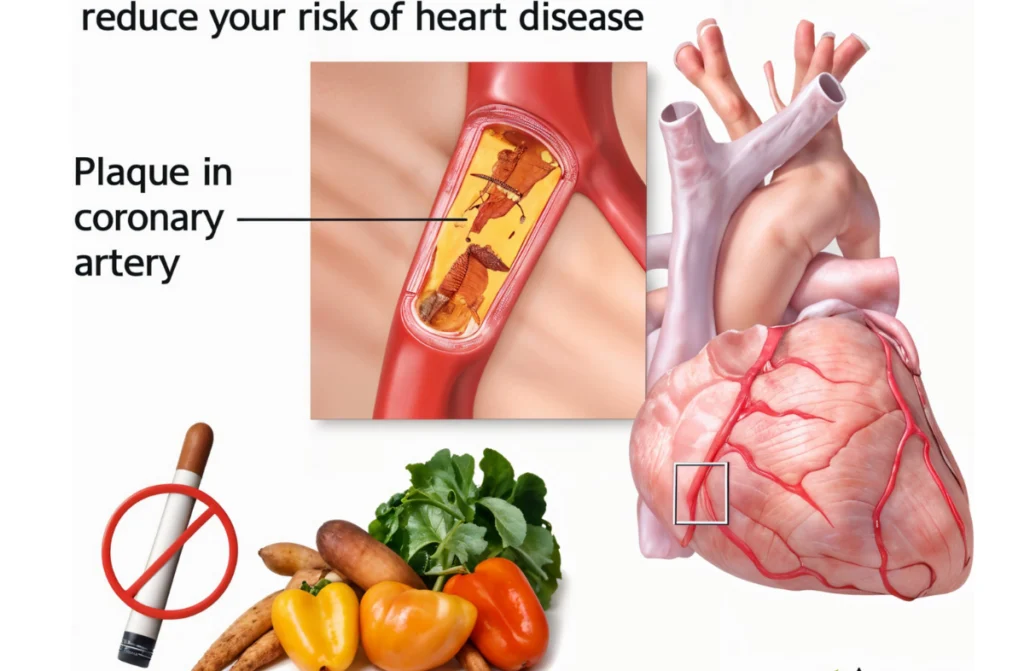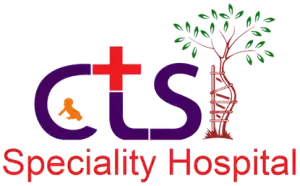When it comes to health, nothing is more important than your heart. Recognizing the signs of a healthy heart can reassure you that you’re on the right track. At CTS Specialty Hospital, we believe that understanding your heart’s health is the first step toward a long and active life. This blog dives deep into what are the signs of a healthy heart, what to watch out for, and tips for keeping your heart in great shape.

What Are the Signs of a Healthy Heart?
Your heart is an incredible organ that works tirelessly to keep you alive. But how do you know it’s healthy? What are the signs of a healthy heart? Here are some key indicators:
- Steady Blood Pressure: A healthy heart ensures your blood pressure stays within the normal range, typically around 120/80 mmHg.
- Resting Heart Rate: A resting heart rate between 60-100 beats per minute indicates that your heart is working efficiently.
- Normal Cholesterol Levels: Balanced levels of LDL (bad cholesterol) and HDL (good cholesterol) are essential for heart health.
- Good Energy Levels: Feeling energetic and not constantly fatigued is a clear sign of a healthy heart.
Now let’s explore the 7 signs of a healthy heart in greater detail.
7 Signs of a Healthy Heart
- Low Resting Heart Rate: A lower resting heart rate means your heart doesn’t have to work too hard to pump blood. For most adults, a resting rate of 60-100 beats per minute is ideal. Athletes often have even lower rates, which is a sign of excellent cardiovascular fitness.
- Quick Recovery After Exercise: After physical activity, a healthy heart recovers quickly. If your heart rate returns to normal within a few minutes, it shows your cardiovascular system is in good shape.
- No Shortness of Breath: Breathing easily during normal activities, and even light exercise, is a good indicator that your heart and lungs are working well together.
- Good Circulation: Warm hands and feet, along with healthy skin color, show that your heart is pumping blood effectively to all parts of your body.
- Healthy Blood Pressure: Keeping your blood pressure within the normal range reduces strain on your heart and arteries, signaling a strong and healthy heart.
- Cholesterol Balance: Low levels of LDL cholesterol and higher levels of HDL cholesterol are vital. This balance prevents blockages in arteries, ensuring your heart pumps efficiently.
- Positive Stress Management: A healthy heart is also linked to how you manage stress. Staying calm under pressure and finding ways to relax can benefit your heart health immensely.
These 7 signs of a healthy heart reflect not just your physical well-being but also your overall lifestyle.
What Does Your Heart Do to Keep You Healthy?
Your heart does more than just pump blood. It delivers oxygen and nutrients to every cell in your body. It regulates your blood pressure and keeps waste products moving to where they can be processed or expelled. A healthy heart means a body that can stay active, fight illness, and recover quickly from injuries. CTS Specialty Hospital emphasizes routine heart health checks to monitor these vital functions.
What Are Signs Your Heart May Not Be Healthy?
While it’s great to know the signs of a healthy heart, it’s equally important to recognize when something might be wrong. Here are 7 signs your heart is not well:
- Chest Pain or Pressure: Pain or discomfort in the chest, often called angina, can indicate reduced blood flow to the heart.
- Recurring Shortness of Breath: If you feel breathless without exertion or during minor activities, it could be a sign of heart problems.
- Heart Palpitations or Skips: Feeling like your heart is skipping beats or racing without reason can indicate an arrhythmia.
- Constant Fatigue: Unexplained tiredness might mean your heart is struggling to pump blood efficiently.
- Dizziness or Lightheadedness: These symptoms, especially when standing up, can indicate reduced blood flow to the brain.
- Swelling in Legs, Ankles, or Feet: Fluid retention in these areas could mean your heart isn’t pumping effectively.
- Sudden Weight Gain: Rapid weight changes might signal fluid buildup caused by heart failure.
If you experience any of these 7 signs your heart is not well, it’s crucial to seek medical advice immediately.
6 Signs of a Heart Attack
Recognizing the 6 signs of a heart attack can save lives. These symptoms may appear days or even weeks before an actual event:
- Chest Discomfort: Pain, pressure, or a squeezing sensation in the chest is a common warning sign.
- Pain in Other Areas: Discomfort may radiate to the arms, neck, back, jaw, or stomach.
- Shortness of Breath: Feeling breathless, even at rest, could indicate a heart issue.
- Cold Sweats: Unexplained sweating can be a warning sign of a heart attack.
- Nausea or Vomiting: Digestive discomfort, especially in women, may signal heart trouble.
- Extreme Fatigue: Feeling unusually tired, even with minimal activity, can be a red flag.
Understanding these 6 signs of a heart attack can help you act swiftly in emergencies.
Are Warning Signs Different for Women Than Men?
Yes, warning signs for heart issues can differ between genders. Women are more likely to experience symptoms like nausea, back pain, and extreme fatigue during a heart attack. Men often report chest pain as the primary symptom. At CTS Specialty Hospital, we tailor our diagnostic and treatment methods to address these differences effectively.
Prevention and Maintaining a Healthy Heart
Preventing heart problems starts with a commitment to a healthy lifestyle. Follow these tips to keep your heart strong:
- Exercise Regularly: Aim for at least 30 minutes of moderate activity, such as walking, five days a week.
- Eat a Heart-Healthy Diet: Focus on whole grains, lean proteins, fruits, and vegetables while minimizing processed foods and saturated fats.
- Quit Smoking: Smoking damages your arteries and increases your risk of heart disease.
- Manage Stress: Practice relaxation techniques like yoga or meditation to reduce stress.
- Regular Checkups: Schedule annual health exams at CTS Specialty Hospital to monitor your heart health.
By taking these steps, you can ensure your heart remains healthy and functional for years to come.
Conclusion
Understanding the signs of a healthy heart is key to maintaining overall well-being. If you notice any unusual symptoms or want to learn more about how to care for your heart, reach out to CTS Specialty Hospital. Our team of specialists is here to help you achieve and maintain excellent heart health.
